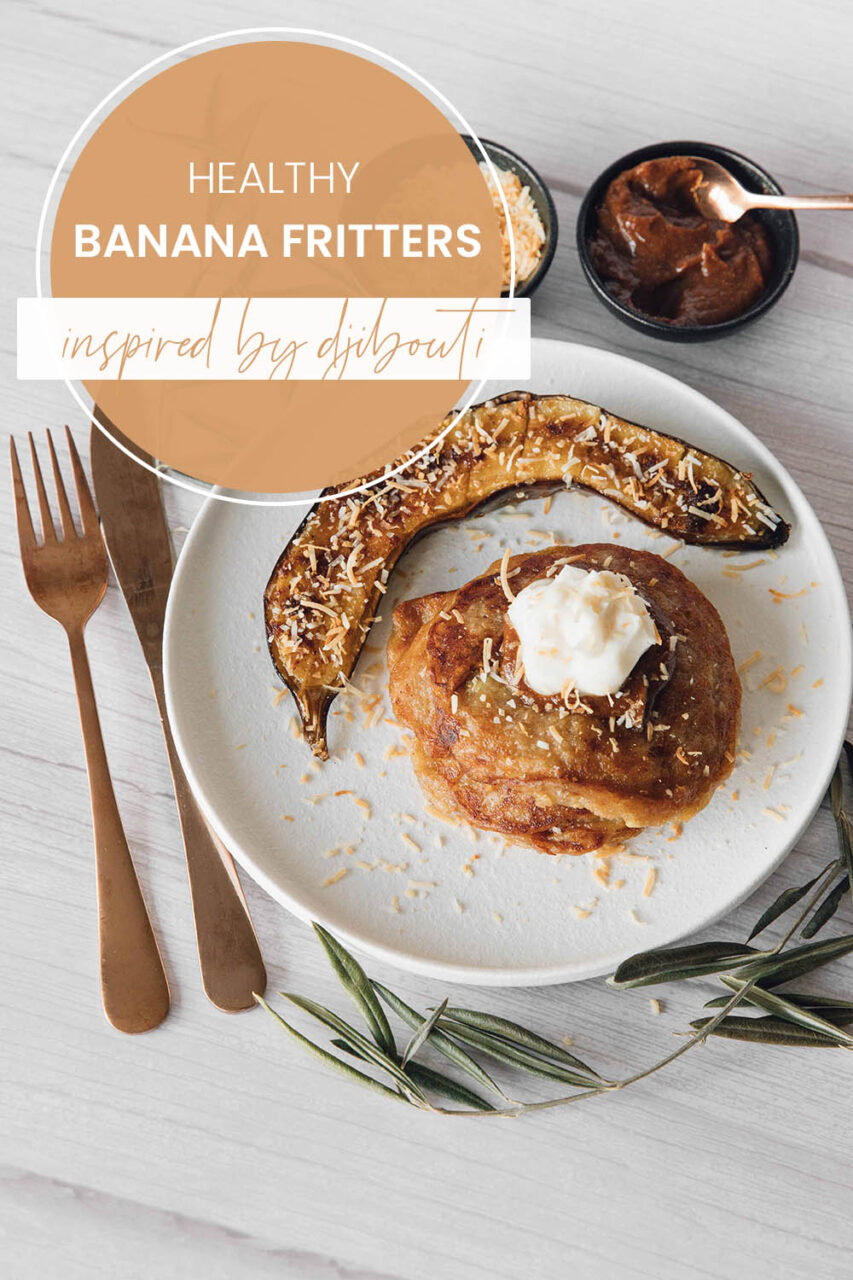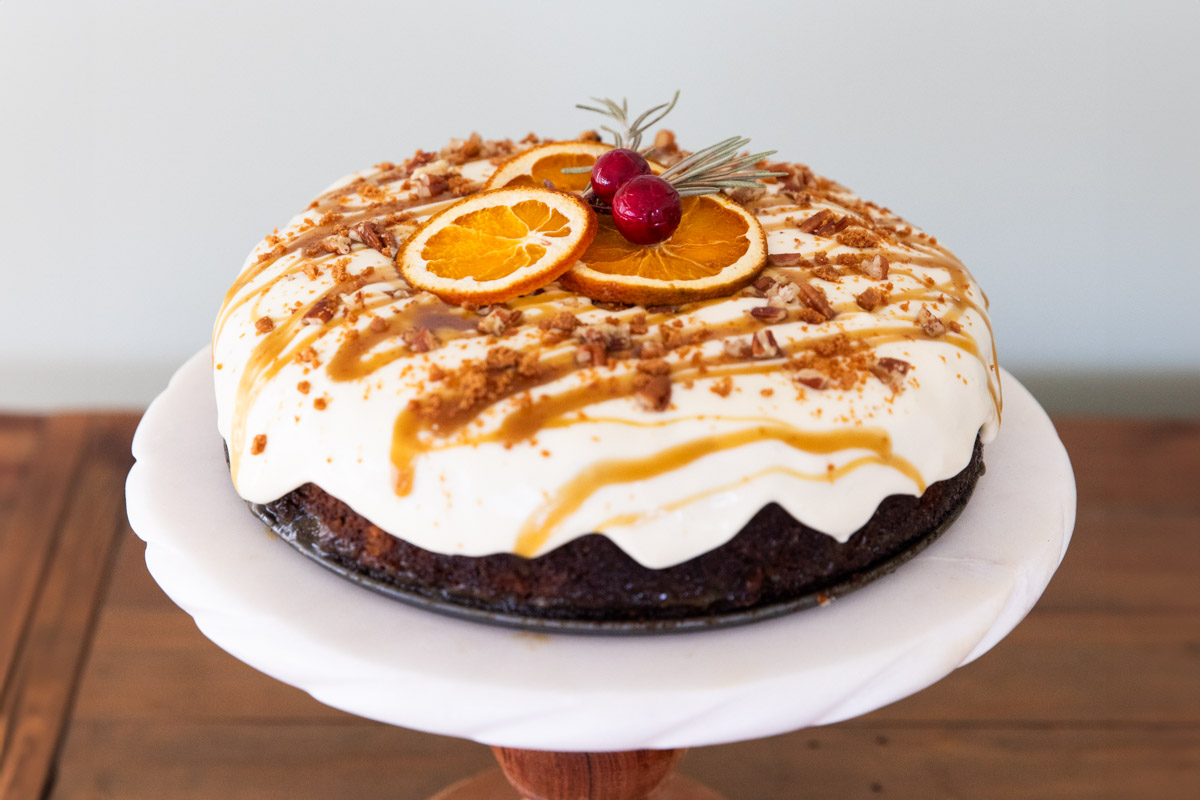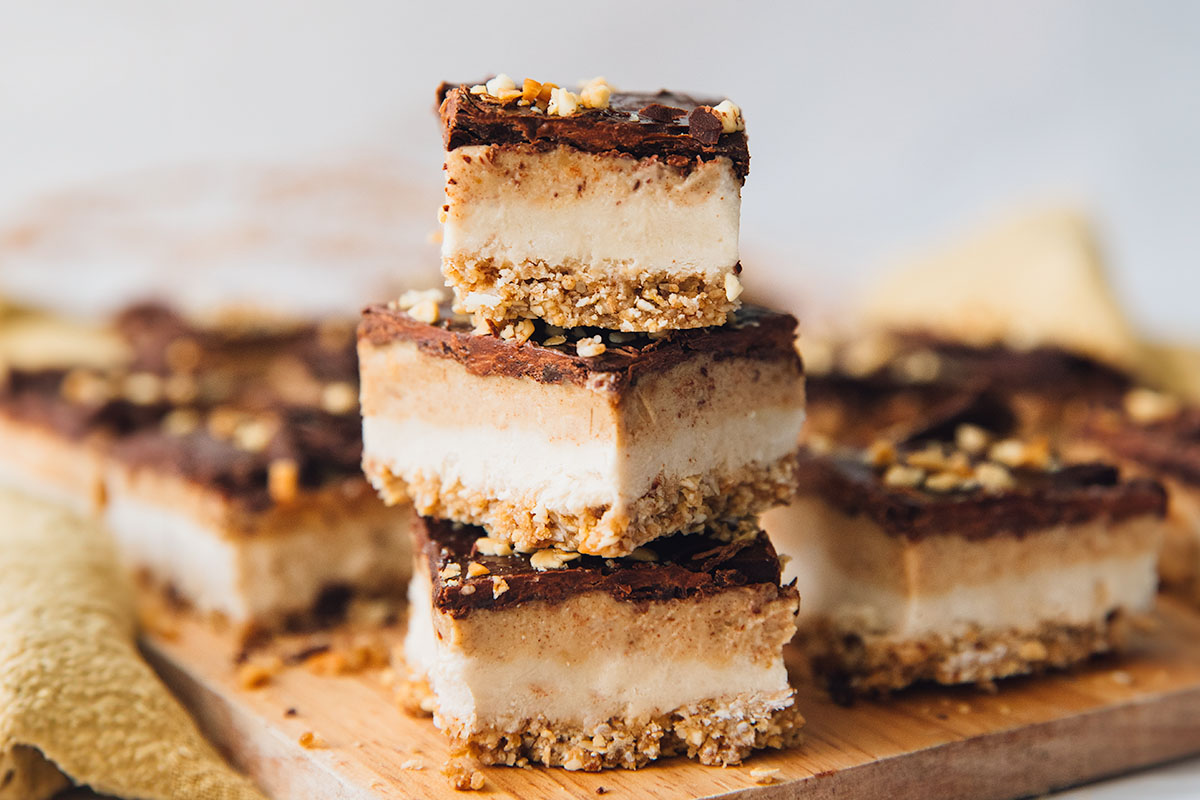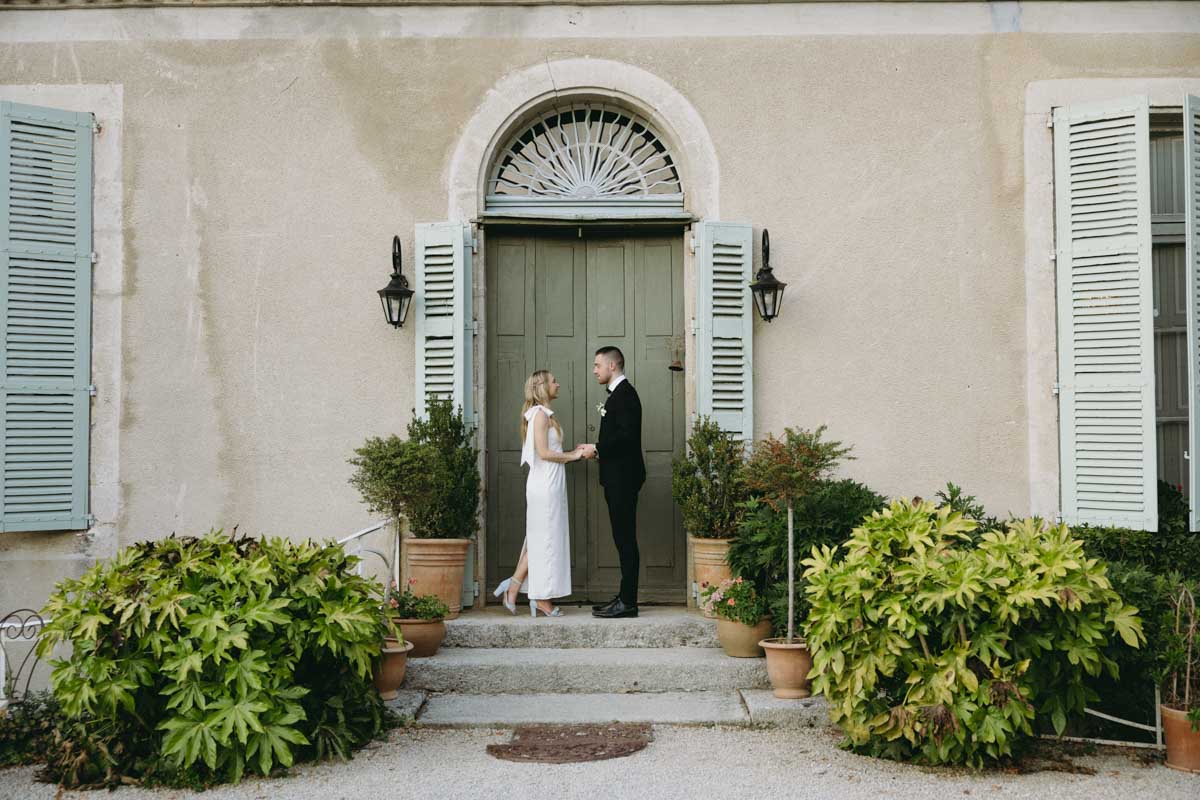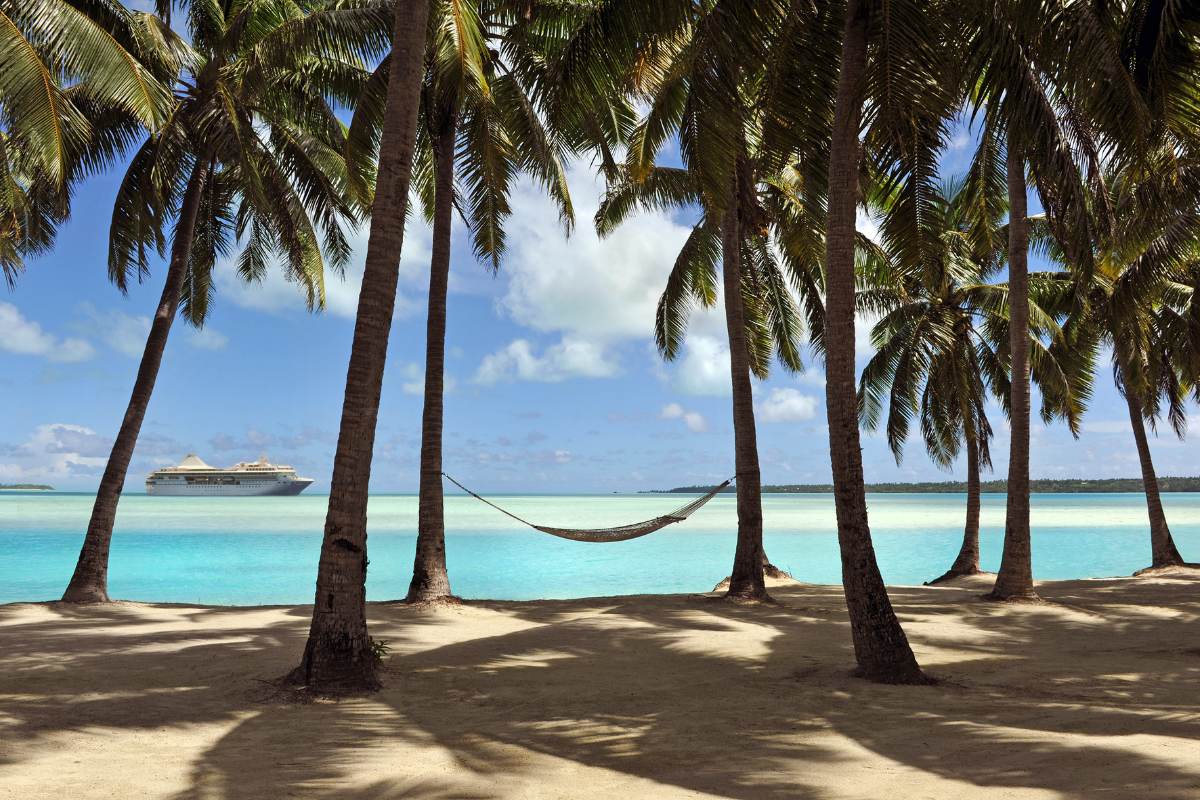These healthy vegan banana fritters, inspired by Djibouti, are beyond easy to whip up and make for a rather satisfying breakfast. For a real treat, we topped our fritters with a delectable date caramel sauce, toasted coconut, coconut yogurt and caramelised banana.
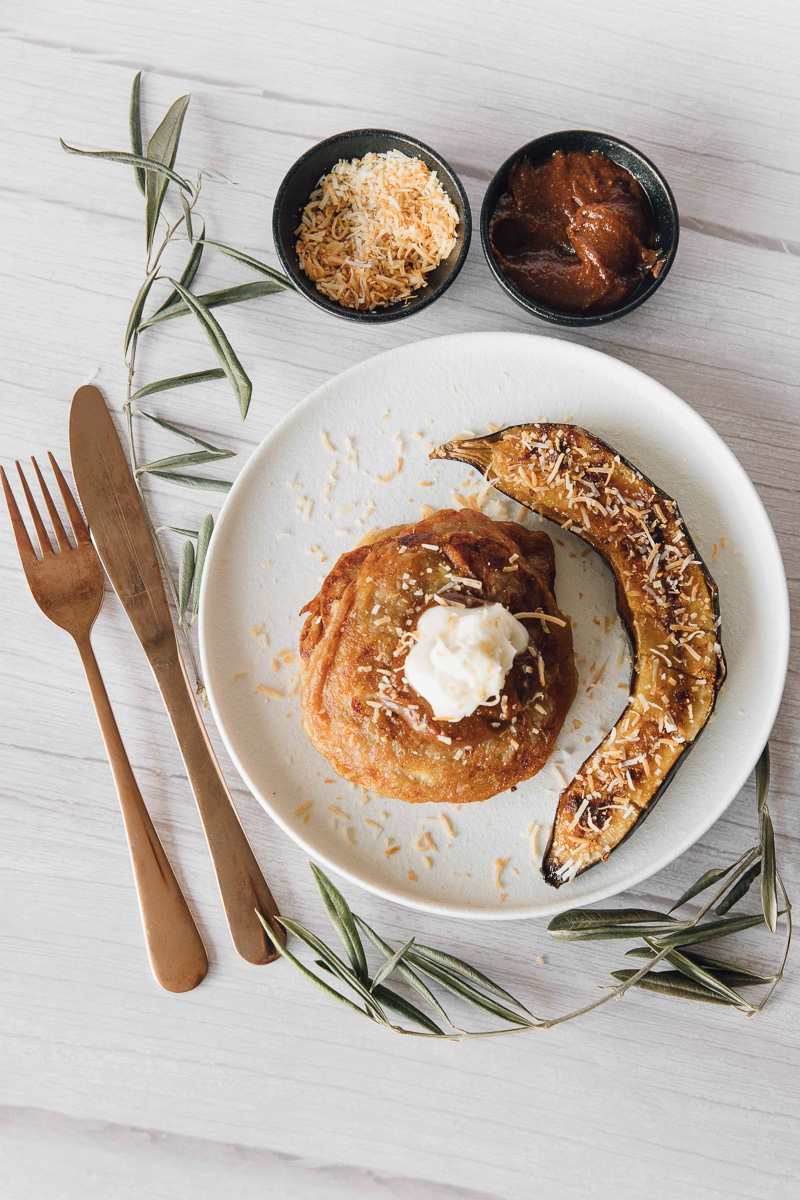
Country Number 48: Djibouti
Djibouti was yet another country I knew very little about before this challenge. In fact, I didn’t even know how to pronounce the country’s name. For those wondering, its pronounced juh-boo-tee. Maybe this is really where Destiny’s Child got the inspo for its song ‘Bootylicious’.
2000’s bangers aside, let’s get back to Djibouti. Djibouti is a small country located in the Horn of Africa, and is home to just over 1 million people. Former known as French Somaliland, the country took its name of Djibouti when it gained its independent from France in 1977. The country is made up of two main ethnic groups: the Somali and the Afar. Both speak different Cushitic languages, even though French and Arabic are acknowledged as the country’s official languages.
Geographically, Djibouti is rather unique. The country is situated on the Bab el Mandeb strait, which separates the Red Sea and the Gulf of Aden, and the capital city has literally been built on coral reefs. Djbouti’s landscape is varied and extreme. To give you an idea of its extremities, its home to the lowest point in Africa, Lake Assal, which is 155 meters below sea level. It is also home to many rugged mountains, including a 2028m high peak, Mount Moussa. The country is also host to a lot of geothermal activity.
History of Djiboutian Cuisine
Djibouti’s cuisine has been mostly influence by surrounding countries such as Ethiopia, Somalia and Yemen. It’s also been shaped by Middle Eastern cuisine, with many spices such as cinnamon and saffron being brought over by the Arabs and still used in the preparation of food today. The staple food of the country is laxoox, which is a flatbread made of teff flour (very similar to Ethiopian injera). Rice, lentil and pasta are also common meals, often served with a spicy berbere sauce.
Because of its rugged landscape, Djibouti has a very limited amount of arable land. Agriculture is mostly just subsistence farming. Other than small yields of tomatoes and dates, there is a limited variety of fruit and vegetables that are produced. Djibouti’s waters are filled with marine life such as tuna, barracuda and grouper. However, most of the Cushitic people in the region don’t actually consume fish, which is unfortunate given its prolific availability. With a history of being nomadic people, they prefer eating meats such as camel, lamb and goat. These meats are most commonly made into stews.
Popular Djiboutian Vegetarian Dishes
- Sambuusa– These crispy fried pastries are often served as an appetiser. They are often filled with onions, potatoes and vegetables and are served hot with a spicy pepper sauce.
- Laxoox– Similar to Ethiopian injera, this is a staple to every meal in Djibouti. It’s a flatbread made of teff flour that is cooked till golden brown. It’s normally served for breakfast with butter or honey or as a side to dip in a stew.
- Sabayaad– Another type of flatbread, this one is made of dough and comes in lightly fried squares. It’s eaten in the same way as laxoox: for breakfast or as a way to soak up a stew.
- Garoobey– Another staple dish in Djibouti, this is a porridge made of oats soaked in milk that is flavoured with cumin.
- Banana fritters– Although these are a popular dish in many parts of the world, Djibouti have their own unique way of making banana fritters. They use mashed ripe bananas that are simply combined with flour, sugar and a dash of nutmeg.
Vegetarian rating of Djiboutian Cuisine:
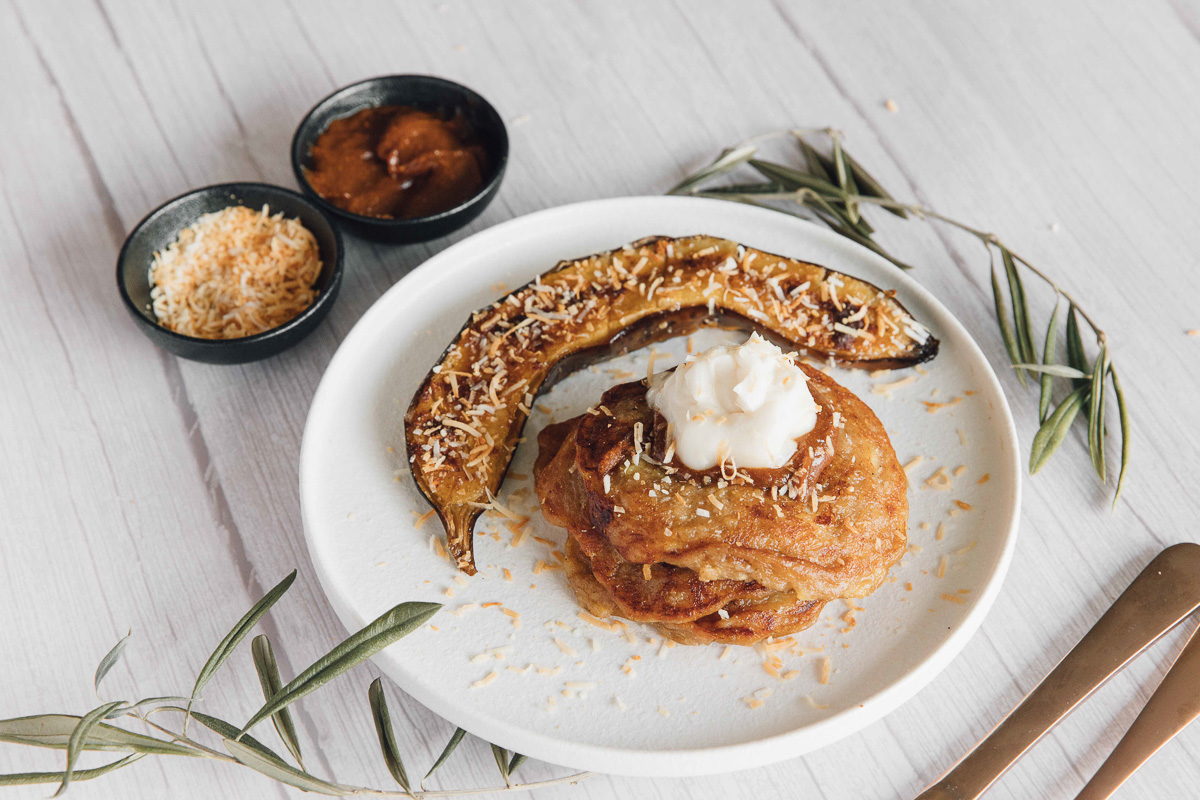
Making Healthy Banana Fritters with Date Caramel
We go through bananas like nothing else in our household. The make a regular appearance at breakfast, whether they are blended into a smoothie, caramelised and put on top of porridge, or mashed up into a cheeky stack of pancakes. When we discovered that Djiboutians also seem to go bananas for bananas, we figured we’d give their beloved banana fritters a go.
Djiboutian banana fritters, despite their name, take the form of pancakes than anything else. I’ve always thought of banana fritters as pieces of banana coated in batter and deep-fried. These fritters, on the other hand, are made from a batter of mashed banana, flour, water, sugar and spices and are fried in a pan as you would do a pancake. However, unlike most pancake recipes, they do not use a binder such as egg, and also have a much high ratio of banana. The result is a denser, floppier, more banana-ish pancake. Or a more pancake-ish banana fritter. However you’d like to put it, they are a tasty treat.
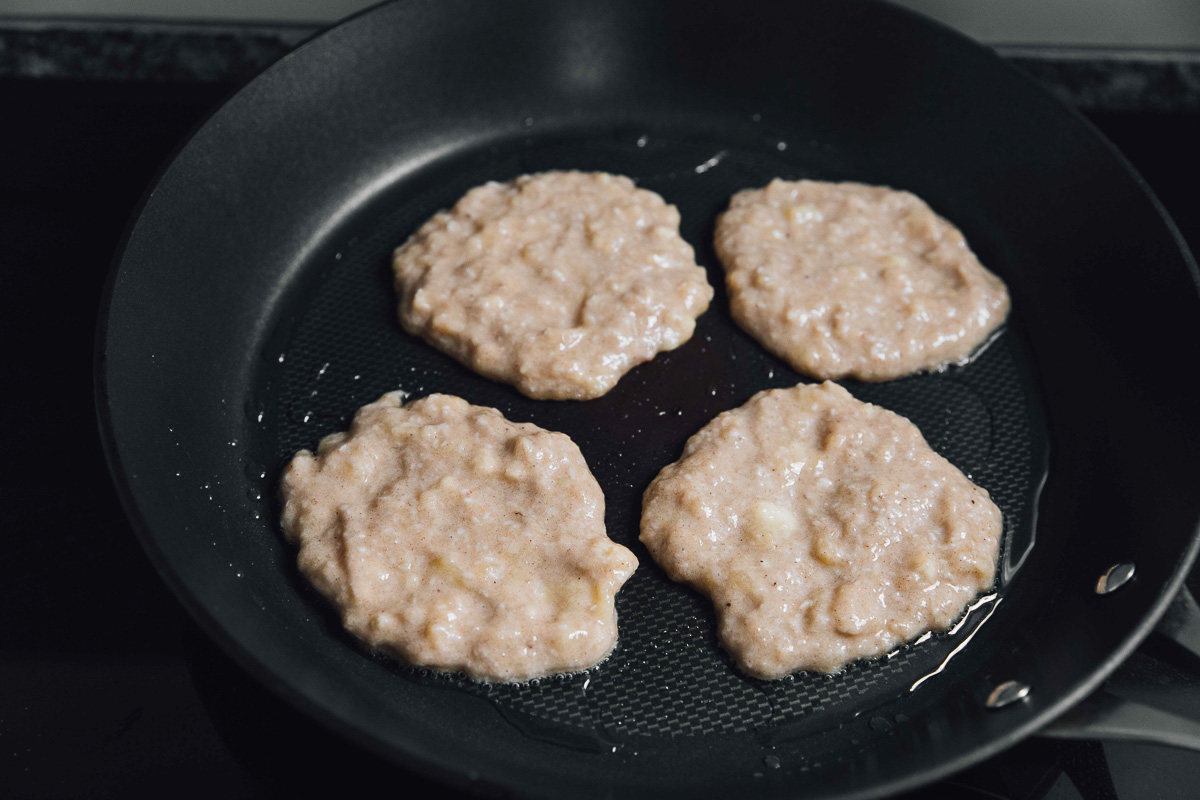
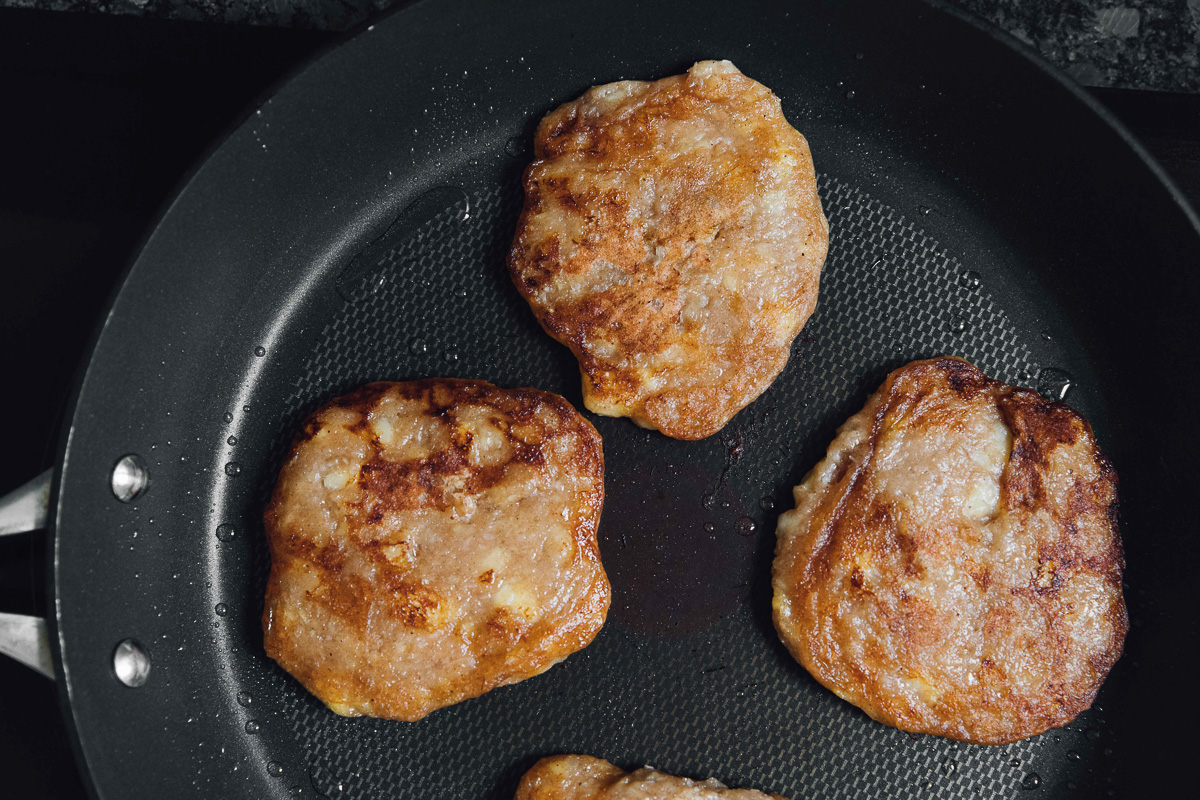
How to make Healthy Banana Fritters with Date Caramel
These banana fritters are impossibly quick and easy to make, meaning you can whip them up as an easy weekday breakfast, midday snack or cheeky dessert. They come together in three easy steps:
- In a medium bowl, mashed bananas. Add in flour, water, coconut sugar, nutmeg, cinnamon and vanilla essence and mix until well combined.
- In a frying pan, heat oil. Once hot, take a scoop of batter at a time and fry on pan for a couple of minutes, until golden. Flip and repeat on other side. Transfer fritters to a plate lined with paper towels. Repeat until all mixture is used.
- Serve fritters hot with date caramel, toasted desiccated coconut, caramelised banana and yogurt.
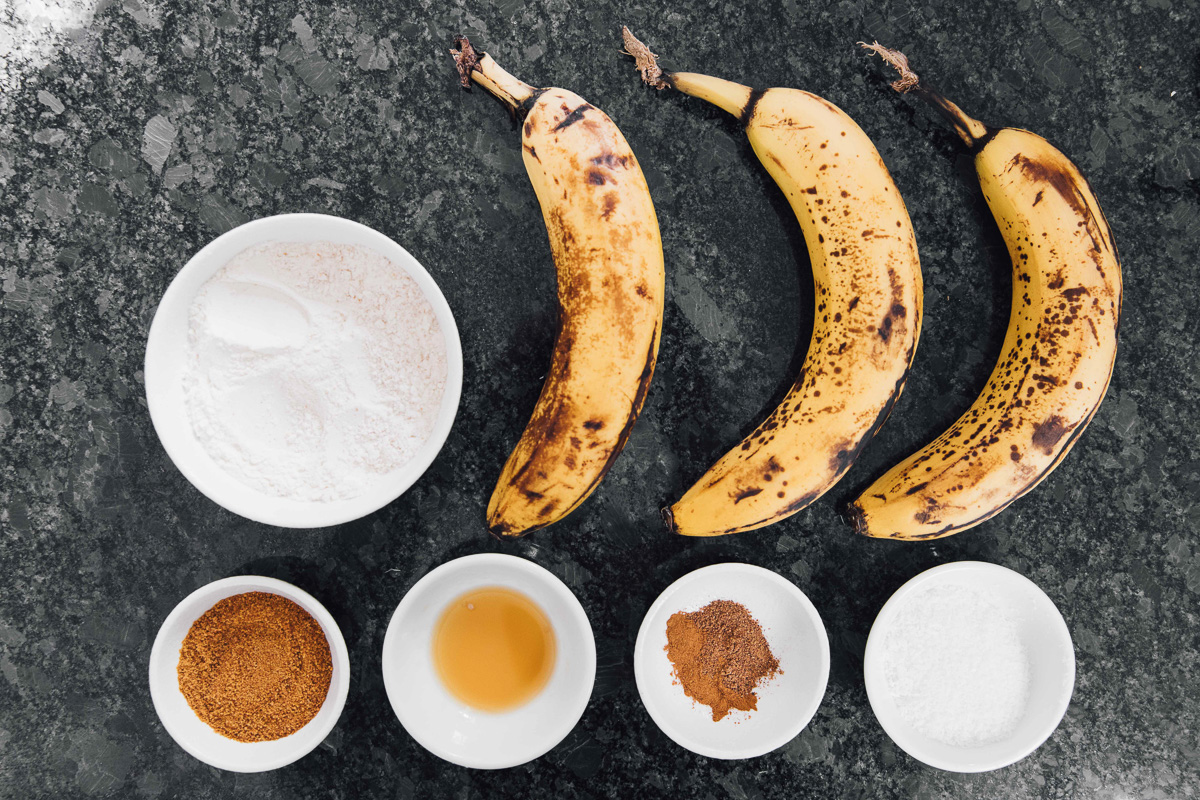
Ingredient notes for Healthy Banana Fritters
- Flour- Although we’d recommend using regular or wholewheat flour for these banana fritters, you can easily make them gluten-free by subbing for rice flour or oat flour.
- Bananas- Make sure you use very ripe bananas for this recipe that are beginning to brown. The riper the banana, the sweeter and tastier the pancake!
- Sugar– We used coconut sugar to sweetened our fritters however you can use any granulated sugar you wish. The banana makes the fritters pretty sweet as is so you don’t need much additional sweetener.
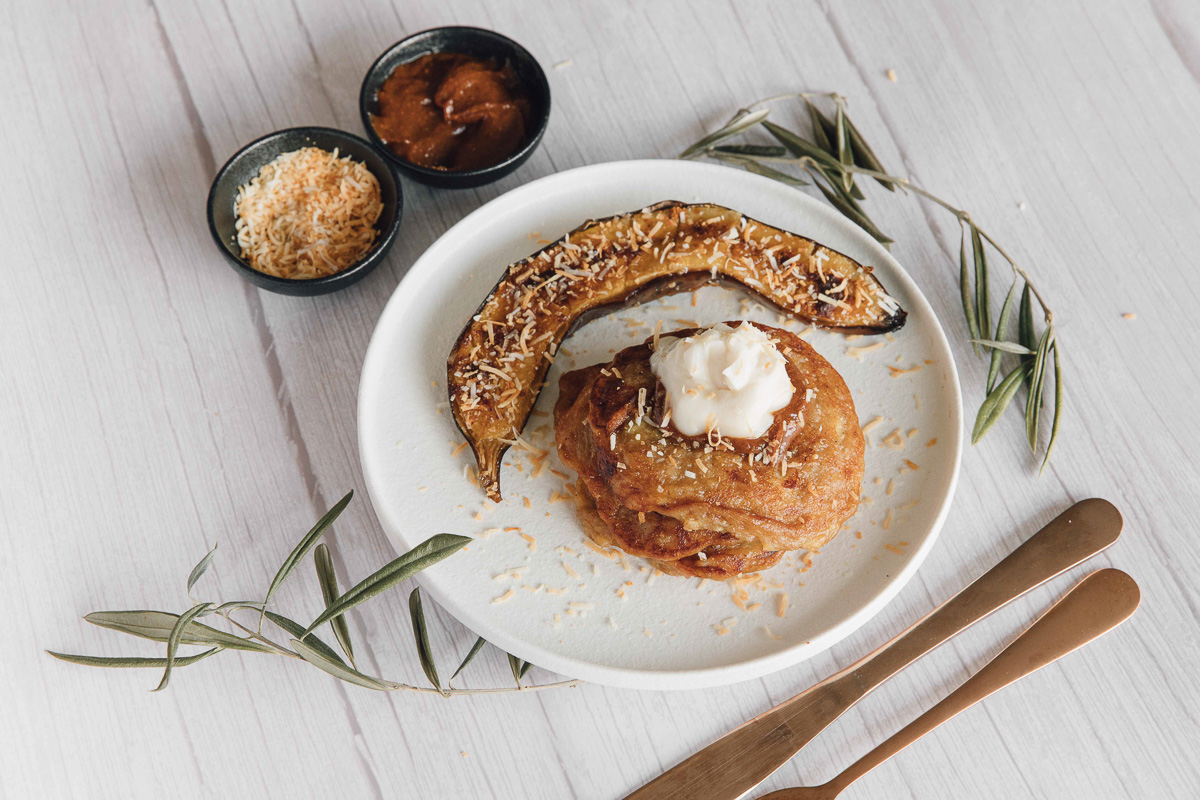
Serving suggestions for these Djibouti Banana Fritters
Traditionally, banana fritters in Djibouti are served warm, simply dusted with powdered sugar or honey. Of course, we aren’t exactly known for going simple with our recipes, and always enjoy a lot of toppings on our meals. We serve our banana fritters with a date caramel sauce, coconut yogurt, toasted coconut and caramelised banana.

Djibouti Banana Fritters with Date Caramel
These healthy vegan banana fritters, inspired by Djibouti, are beyond easy to whip up and make for a rather satisfying breakfast. For a real treat, we topped our fritters with a delectable date caramel sauce, toasted coconut, coconut yogurt and caramelised banana.
Ingredients
Banana Fritters:
- 3 ripe bananas
- 1/2 cup white flour, sub for rice to make GF
- 1 tbsp coconut sugar, dissolved in 1 tbsp of water
- 1/2 tsp nutmeg
- 1/2 tsp cinnamon
- 1 tsp vanilla essence
- Oil for frying
Date caramel (optional):
- 2 tbsp almond butter
- 3 medjool dates
- 1 tbsp warm water
- Pinch of salt
To serve:
- Date caramel
- Desiccated coconut, lightly toasted
- Coconut yogurt
- Caramelised banana
Instructions
Make banana fritters:
- In a medium bowl, mashed bananas. Add in flour, water, coconut sugar, nutmeg, cinnamon and vanilla essence and mix until well combined.
- In a frying pan, heat oil. Once hot, take a scoop of batter at a time and fry on pan for a couple of minutes, until golden. Flip and repeat on other side.
- Transfer fritters to a plate lined with paper towels. Repeat until all mixture is used.
- Serve fritters hot with date caramel, toasted desiccated coconut, caramelised banana and yogurt.
Make date caramel (optional):
- In a blender, blend almond butter, dates, warm water and a pinch of salt until smooth paste forms.
Other healthy banana dishes to try
Like this Djibouti banana fritters recipe? Pin it for later!
